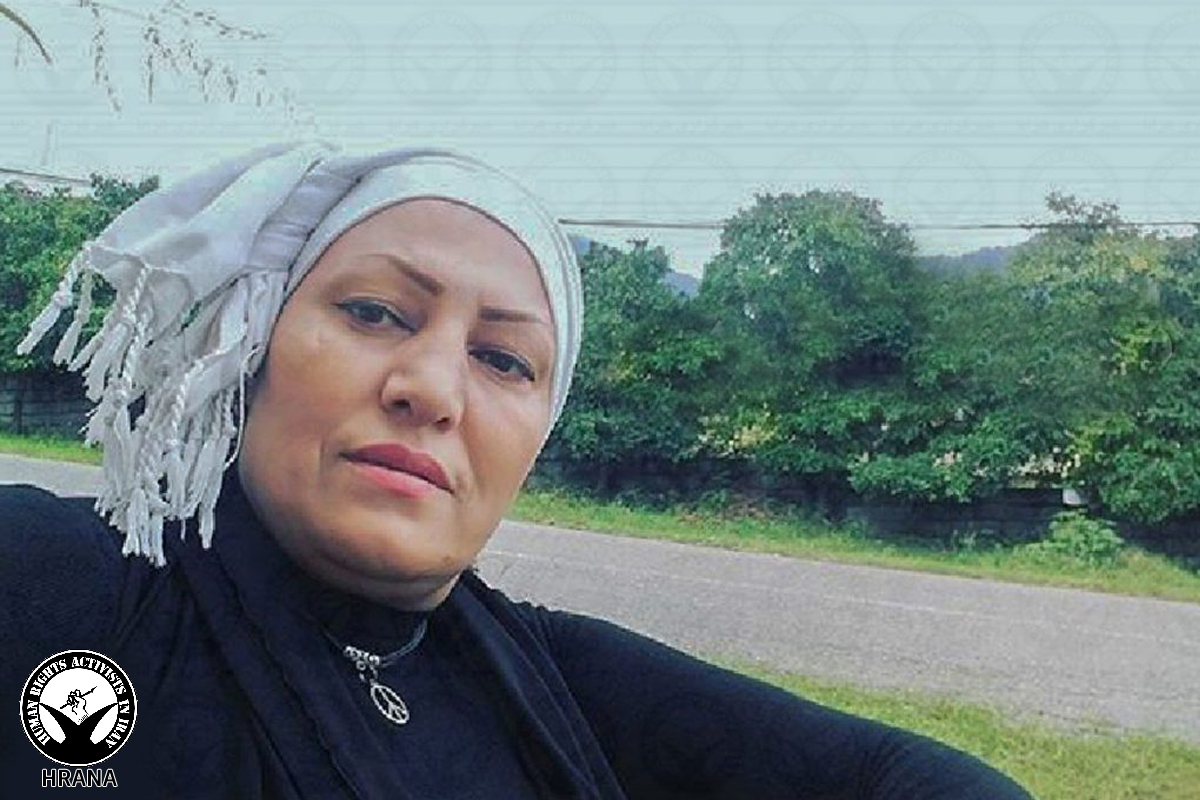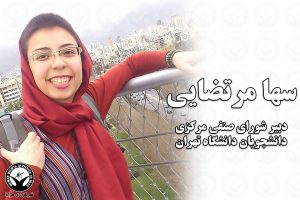Human Rights Activists News Agency (HRANA) – On Tuesday, September 25, 2018, political prisoner Mahin-Taj Ahmadpour agreed to end her 16-day hunger strike in exchange for verbal commitments from prison authorities to meet her demands for medical treatment.
Authorities at Nashtaroud Prison of Tonekabon, where Ahmadpour is being held, had previously dismissed her requests for more adequate anemia treatment. A source close to Ahmadpour told HRANA that the authorities have now pivoted, making promises to approve a hospital transfer and medication deliveries from her family. “In addition, they asked her to put in a request for conditional release, and promised to facilitate the processing of the request.”
Ahmadpour had lost 8 pounds by the 10th day of her strike when HRANA reported on prison authorities’ failure to address her deteriorating physical health.
Sentenced to 10 months in prison for her participation in the January protests, Ahmadpour began starving herself September 10th to protest her restricted access to resources, such as medical care and the telephone, and to revolt against prison authorities who reportedly threatened to open new charges against her as a form of coercion or harassment.
Per her treatment plan for anemia, Ahmadpour should receive seven units of blood every month. An informed source told HRANA that monthly blood infusions were also recommended for her as a preventative measure against leukemia. In the face of her diagnosis and supporting medical documentation, however, prison authorities had until now denied Ahmadpour’s requests for outside medication and refused to clear her for a medical transfer.
Mahin-Taj Ahmadpour is a 46-year-old resident of Tonekabon. A peddler by trade, she was arrested along with 14 other residents during widespread rallies that took place in January 2018 across Iran, known as the January Protests. The Revolutionary Court of Tonekabon sentenced eight of these arrestees to 28 months’ imprisonment, divided among the defendants. Branch 101 of Criminal Court No. 2 of Tonekabon, presided over by Judge Ebrahimi, also sentenced six of the arrestees to 24 collective months of prison time.
Ahmadpour was first sentenced May 2, 2018, in Branch 101 of Tonekabon Criminal Court No. 2 to serve a six-month prison sentence on a charge of “disrupting the public peace through participation in an illegal gathering.” On August 11, 2018, Tonekabon’s Revolutionary Court compounded the sentence with four months’ imprisonment for “propaganda against the regime.” As evidence against her, the court cited a combination of law enforcement reports and images and video taken during the January protests in Tonekabon.





